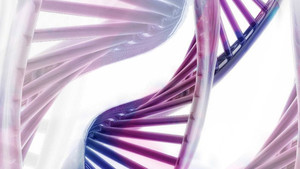A study of blood clot dissolving drug streptokinase has highlighted the mantra of ‘the process is the product’ in the case of biologicals [1].
Streptokinase is a long-established thrombolytic drug derived from streptococci species. It is the most widely used thrombolytic agent and remains popular in the developing world. Thrombolytic agents are used for the treatment of myocardial infarction (heart attack), thromboembolic strokes, deep vein thrombosis and pulmonary embolism.
The effects of natural streptokinase on the treatment outcome with patients suffering from myocardial infarction have been similar to other prominent thrombolytic agents, which is why it remains as an agent of choice in the treatment of myocardial infarction. Streptokinase is manufactured by recombinant DNA technology from Escherichia coli (E. coli) as a non-glycosylated polypeptide chain. Upon injection, it indirectly acquires the plasminogen activating property. The resultant activator complex, a highly specific protease, then converts other plasminogen molecules to their proteolytically active form plasmin, through a series of biochemically distinct steps. The plasmin, which is a non-specific protease, circulates in the system and helps to dissolve the blood clots.
No longer under patent, streptokinase is increasingly produced in E. coli as a ‘similar biologic’. However, there is increasing concern that versions of recombinant streptokinase produced in E. coli do not behave like streptokinase produced by Streptococcus equisimilis, which is the source of streptokinase used in the current WHO 3rd International Standard for Streptokinase, 00/464. This may be due to incomplete processing, resulting in retention of the amino-terminal methionine engineered for intracellular expression.
No biosimilars of streptokinase are approved in Europe, however, at least two ‘similar biologics’ are approved in India (Myokinase – Biocon and Shankinase – Shantha Biotechnics) [2].
The article that follows discusses the impact of an amino-terminal methionine on streptokinase activity.
Conflict of interest
The authors of the research paper [1] declared no conflicts of interest.
Editor’s comment
It should be noted that ‘similar biologics’ approved in India might not have been authorized following as strict a regulatory process as is required for approval of biosimilars in the European Union. The EMA (European Medicines Agency) regulatory requirements ensure the same high standards of quality, safety and efficacy for biosimilars as for originator biologicals, and also include a rigorous comparability exercise with the reference product.
Readers interested to learn more about safety assessments for biosimilars in Europe are invited to visit www.gabi-journal.net to view the following manuscript published in GaBI Journal:
Safety assessment of biosimilars in Europe: a regulatory perspective
Readers interested in contributing a research or perspective paper to GaBI Journal – an independent, peer reviewed academic journal platform – please send us your submission here.
Related article
Incomplete processing in biosimilar recombinant streptokinase
References
1. Thelwell C, Longstaff C. Biosimilars: the process is the product. The example of recombinant streptokinase. J Thromb Haemost. 2014;12(8):1229-33.
2. GaBI Online - Generics and Biosimilars Initiative. ‘Similar biologics’ approved and marketed in India [www.gabionline.net]. Mol, Belgium: Pro Pharma Communications International; [cited 2015 May 22]. Available from: www.gabionline.net/Biosimilars/General/Similar-biologics-approved-and-marketed-in-India
Permission granted to reproduce for personal and non-commercial use only. All other reproduction, copy or reprinting of all or part of any ‘Content’ found on this website is strictly prohibited without the prior consent of the publisher. Contact the publisher to obtain permission before redistributing.
Copyright – Unless otherwise stated all contents of this website are © 2015 Pro Pharma Communications International. All Rights Reserved.








 2
2











Post your comment